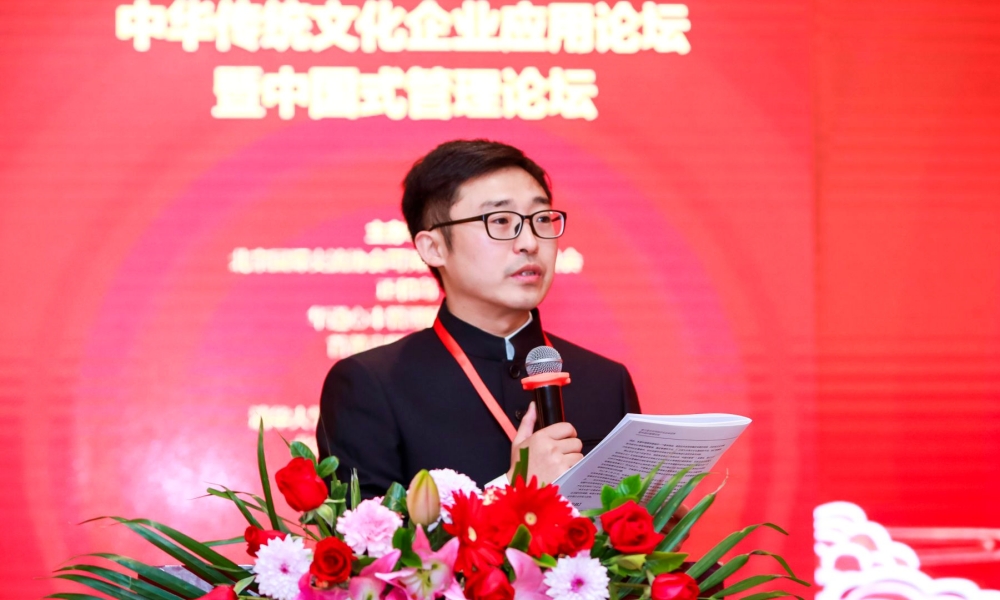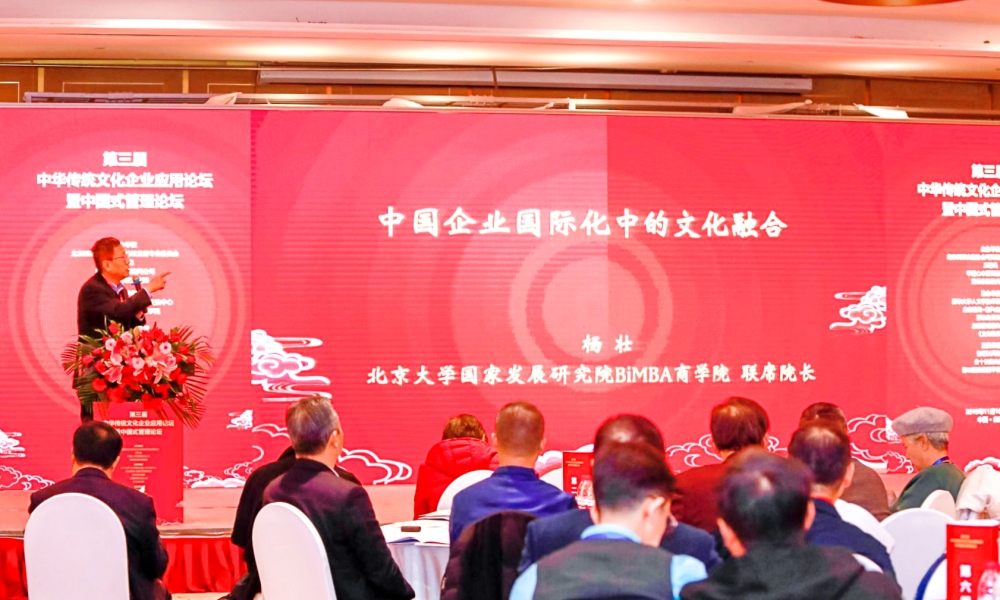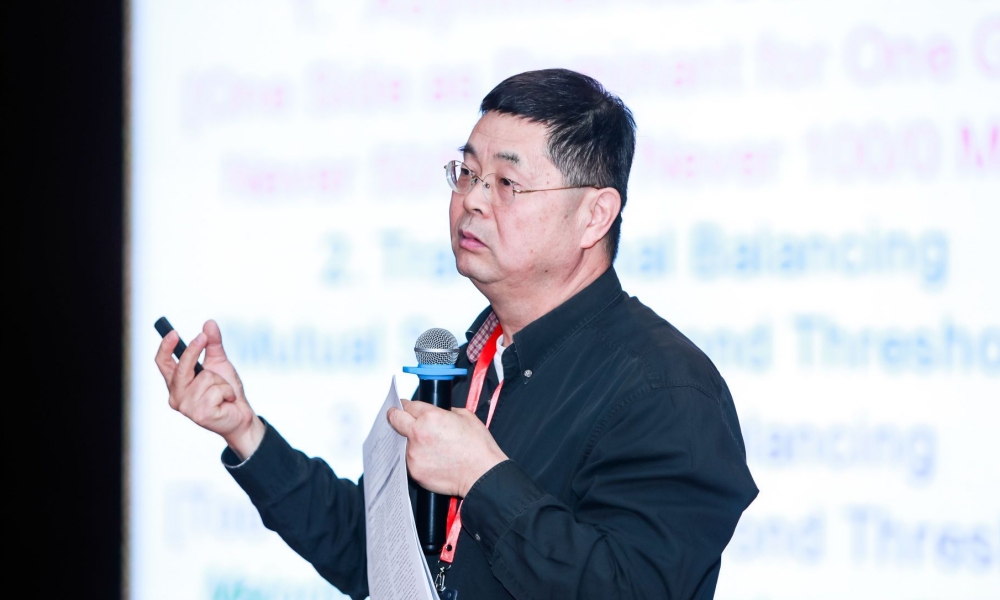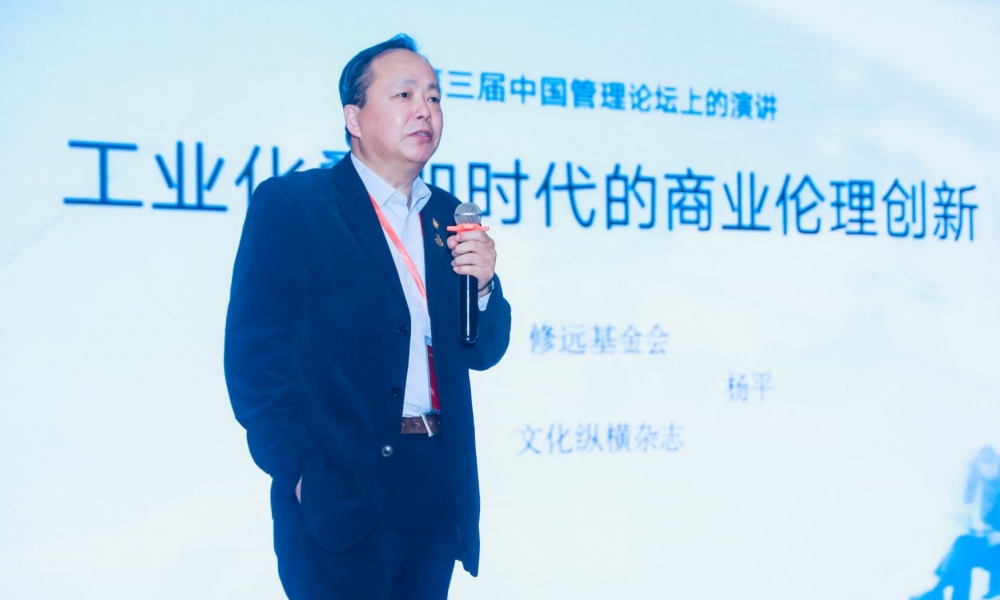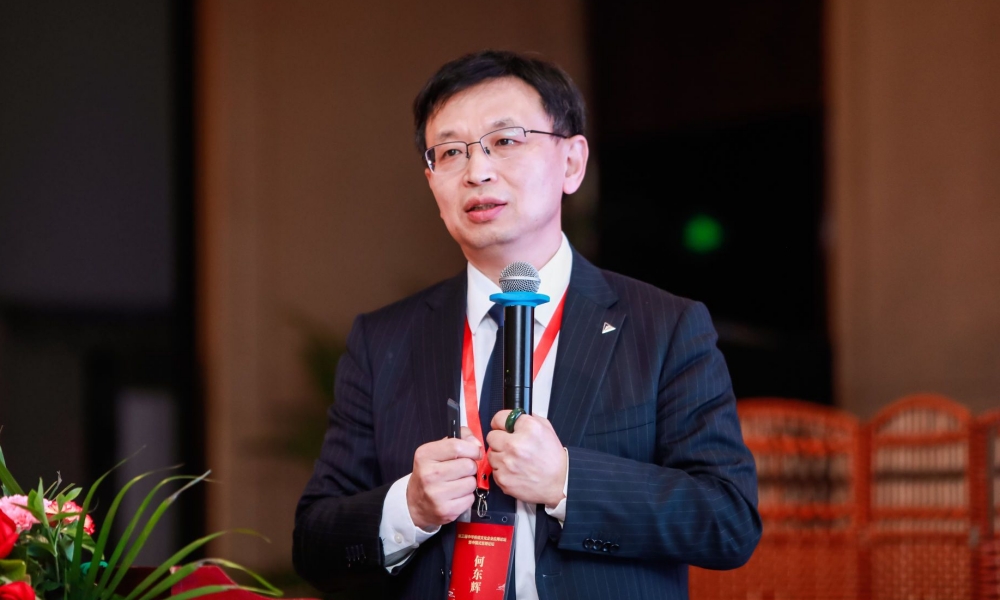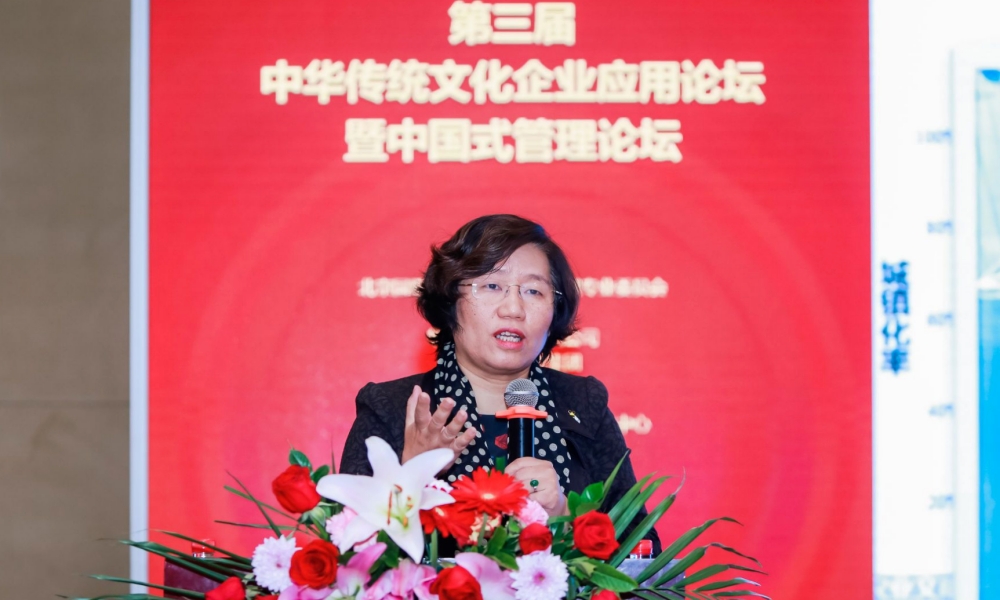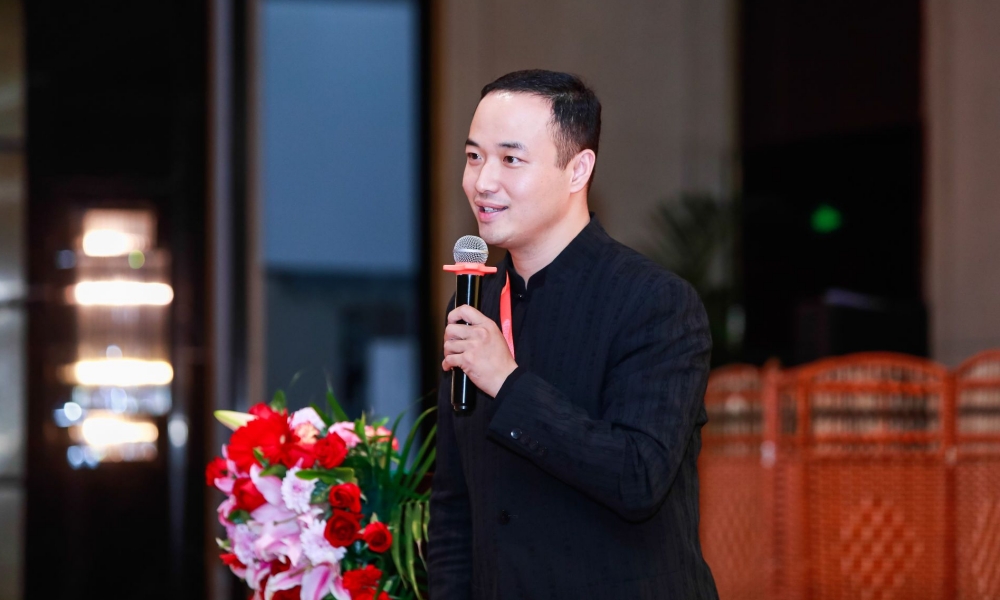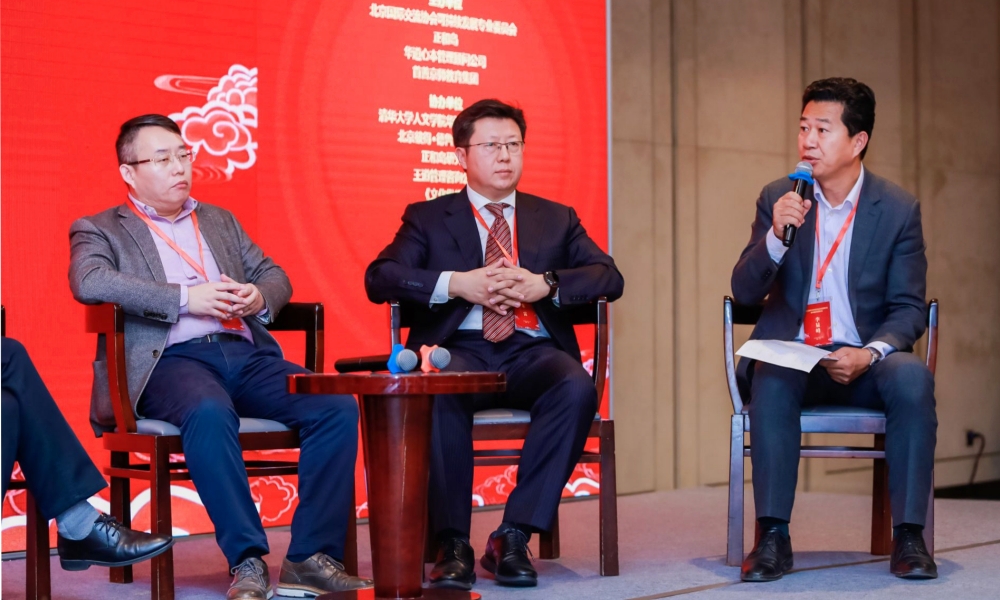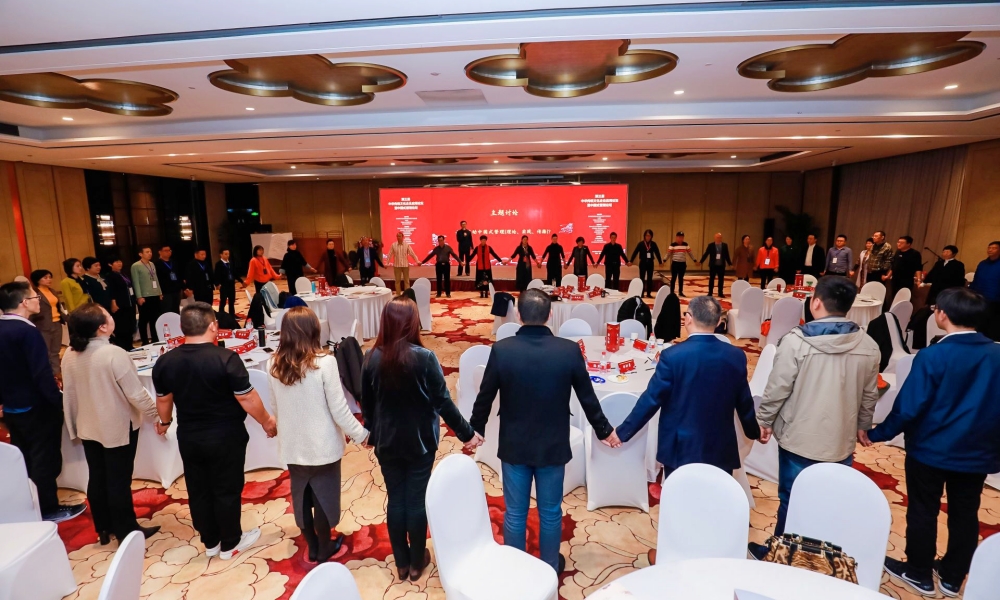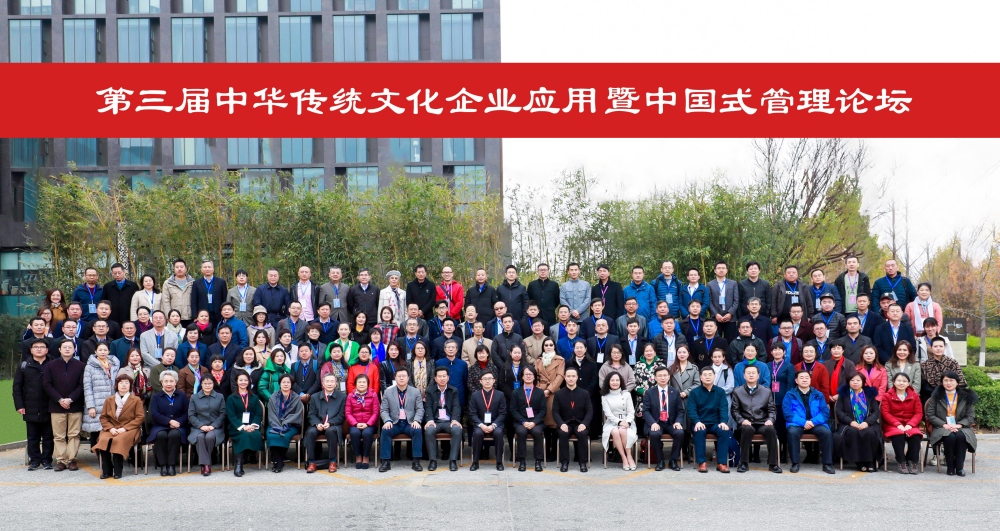From Nov. 16th to 17th, the 3rd Forum on Traditional Chinese Culture and Its Application in Enterprises - Chinese Management Model was successfully held at Palace Garden Hotel and Resort, Beijing. The event was organized by Beijing International Exchange Association Sustainable Development Committee (BJ-SDC), Z.H.ISLAND, Beijing Hua Dao Consciousness Energy Management Ltd and Shoushan Jinshi Education Group, and was co-organized by Hua Tao Cultural Exchange Center at School of Humanities, Tsinghua University, Peter F. Drucker Academy, Z.H.ISLAND Institute, Wangdao Management and Consulting Ltd and Beijing Cultural Review Magazine. It also received supports from Beijing Century Galaxy Technology Group, Heshi Changbai Mountain High Quality Rice Ltd, and Xiuzheng Health Group. Over 200 entrepreneurs and senior managers as well as more than 20 guests from industries, academies and research Institutes attended the event and jointly studied the essence of Chinese Management Model.
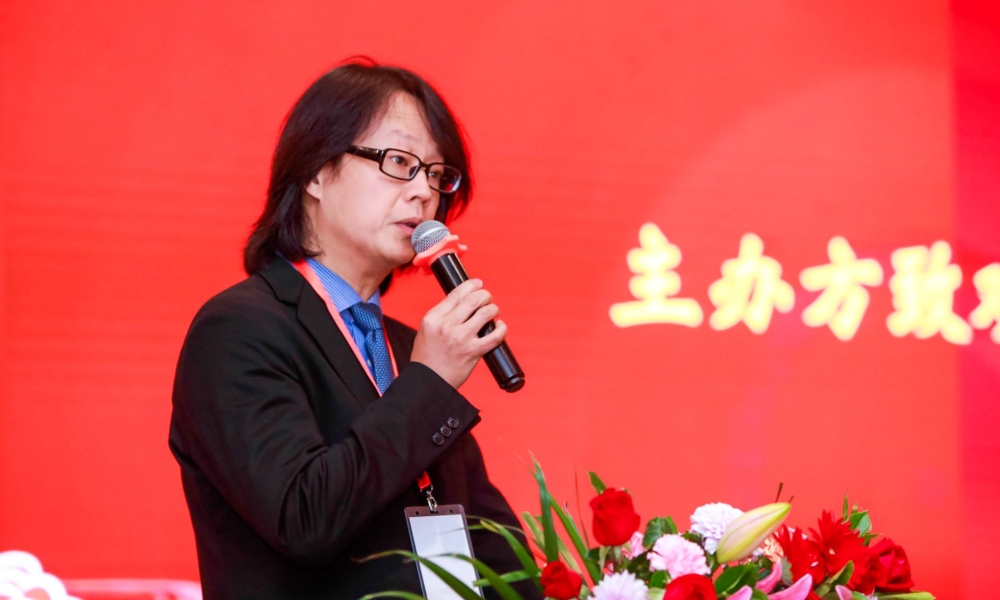
BJ-SDC Chairman Ray Liu Delivered an Opening Speech
Ray Liu, Chair of BJ-SDC delivered opening speech for the event. In his speech, Chair Liu said that it has been three years since the initial Traditional Chinese Culture and Its Application in Enterprises Forum was held in 2017 at Diaoyutai State Guest House. The forum has currently become a unique and major event in the management area with deep topics and incisive summary of practical experience.
Today, the global economic pattern is changing at a deep and comprehensive level, while the economic situation is still complicated and volatile. The barriers between industries are continously broken and boundaries of enterprises are broadened. In this context, enterprises play more divesified roles in social production and lives in this new era, which make us realize that we have to find the “root” and “essence” of business strategic plans and management from traditional Chinese culture.
Drucker Yu, Director of BJ-SDC, Deputy Director of Hua Tao Cultural Exchange Center at School of Humanities, Tsinghua University and Dean of Houde Positioning Academy.
Mr. Hsu Cho-yun, Leading Expert of Application of Traditional Chinese Culture in Enterprises Research Program at Tsinghua University sent his congratulations in the letter The Spirit of Chinese Culture. In the letter, Mr. Hsu defined the essence of business management in traditional Chinese culture lied in integrity and jusitice and hoped that Chinese entrepreneurs could learn from our good traditions, apply it into practice and build Chinese Management Model.
Pro. Yang Zhuang, Co-Dean of BiMBA at National School of Development, Peking University
Professor Yang Zhuang combined advantages of western and eastern management, and put forward The Five Forces of Innovative Leadrs. In his speech, Professor Yang pointed that trade friction was not just an issue of trade, since it was also influenced by mindsets, development mode as well as management mode. And it was very meaningful to talk about Chinese management mode in the complicated, diversified and uncertain environment.
Li Ping, Li Dak Sum Chair Professor, University of Nottingham Ningbo China
Professor Li Ping explored Chinese Management Mode using Taoist Philosophy and he matched Chinese philosophy with its corresponding western philosophy, such as “Tao” to “Ontology”, “Yin and Yang” to “Epistemology”, and “Perception” to “Methodology”, and analyzed differences of the two philosophical systems.
“Tao” emphasizes oneness of heaven and earth; “Yin and Yang” belives all things exist as inseparable and contradictory opposite; and “Perception” seeks integration of sensibility and rationality. Chinese philosophy is greatly distinct from western philosophy which emphasizes separation of subject and object, as well as logical consistency. Therefore, Chinese management could absorb wisdom from Chinese philosophy and achieve harmony but not uniformity, and find balance in paradox.
Yang Ping, Director of Beijing Cultural Review
Director Yang Ping believed that superposition was occuring in Chinese industrialization from perspectives of time, spatial structures and inner as well as outer factors. First, while developed countries have entered into an era of creative economy, China is still striving for industrialization with emergence of new economic missions; second, eastern China is working hard to realize industry upgrade, while middle and western China is rising up; third, when China is still trying to catch up with the America, America begins to advocates reindustrialization and attract manufactory industry to come back to the country.
Superposition in industrialization will face delimma in business ethics, which is caused by incomplete moral contract and lack of competition as well as innovation ethics.
During the two days’ forum, guests from domains like education, design, manufacture, architecture and agriculture shared their practices on exploring Chinese Management Model.
He Donghui, Co-Executive Director of FOTILE Group
He Donghui, Co-Executive Director of FOTILE Group shared their practice on adopting traditional Chinese culture into enterprise management during past decade. On the way to become a enterprise with over 10 billion RMB assets, FOTILE Group has stuck to the mission of bringing happiness to millions of families and inspiring their employees to create good products with a loving heart and do good to the society.
Ye Qing, Chairwoman of Shenzhen Institute of Building Research
Ye Qing, Chairwoman of Shenzhen Institute of Building Research and Deputy Director of China Green Building Committee focused on the topic of relationship between man and nature in the process of urbanization. She and her team have committed themselves to creating buildings that following the nature and providing a space for people to settle their mind and body. The headquater of Shenzhen Institute of Building Research is their representative work in the area of green building and received highly recognition from people in different domains.
Cao Yujie, President of Shoushan Jinshi Education Group
When talking about requirements to Chinese entrepreneurs in the new era, Mr. Cao Yujie hoped that Chinese entrepreneurs could change from simply imitating western management model to adopting traditional Chinese culture in management of our heart and the society, and finally realize Sageliness Within and Kingliness Without.
Expert Review
One of the common points of those business practices is to seek a fulcrum of developement from tradition Chinese culture to unify people’s heart and rebuild the value systems in their enterprises. Although these business practices are still in the process of exploration, some successful results have enabled participants to see a historic opportunity for enterprise management.
Close Session of the Forum
Declaration of Chinese Management Model
Group Photo
At the end of the forum, "Declaration on Chinese Management Model" was issued. The first draft of the declaration was written by Mr. Mao Zhongqun, Chairman of FOTILE Group. And the final version was confirmed after discussion among more than 20 experts, scholars and entrepreneurs and combining viewpoints of Mr. Hsu Cho-yun and Mr. Zeng Shiqiang, Father of Chinese Management.

